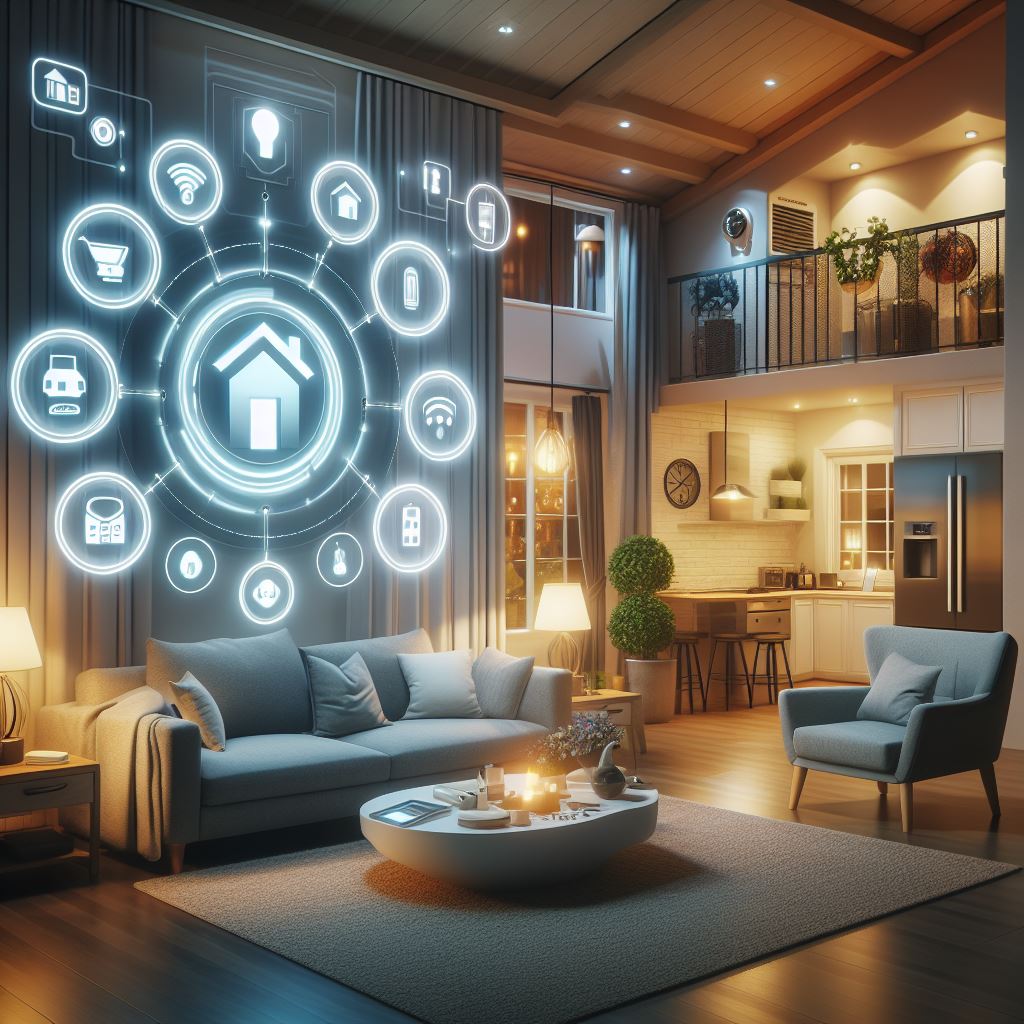The smart home market has evolved rapidly over the past decade, transforming the way we interact with our living spaces. With advancements in technology, increasing consumer demand for convenience, and a growing emphasis on energy efficiency, the smart home sector is set to experience significant growth in the coming years. Explores the key growth factors and emerging trends shaping the smart home market.
The global smart home market was valued at USD 84.5 billion in 2024 and is projected to reach USD 116.4 billion by 2029; it is expected to register a CAGR of 6.6% during the forecast period. The growing need for energy-saving and low carbon emission-oriented solutions and concerns about safety, security, and convenience among general population is attributed to the demand for smart homes. Increasing number of internet users and growing adoption of smart devices, increasing disposable income of people in developing economies, increasing importance of home monitoring in remote locations, growing need for energy-saving and low carbon emission-oriented solutions, and growing concerns about safety, security, and convenience among general population are attributed to the demand of smart home.
Smart Home Market Growth Drivers
Rising Consumer Awareness and Demand
As consumers become more aware of the benefits of smart home technologies, demand is skyrocketing. The desire for increased convenience, enhanced security, and improved energy efficiency drives homeowners to invest in smart devices. Awareness campaigns and marketing efforts by manufacturers have played a crucial role in educating consumers about the advantages of smart home solutions.
Technological Advancements in Smart Home Market
Rapid advancements in technology, such as the Internet of Things (IoT), artificial intelligence (AI), and machine learning, are propelling the smart home market. These technologies enable devices to communicate seamlessly, learn user preferences, and automate daily tasks. For example, smart thermostats can learn a homeowner’s schedule to optimize energy use, leading to cost savings.
Increased Focus on Energy Efficiency
With growing concerns about climate change and energy costs, consumers are seeking ways to reduce their carbon footprint. Smart home devices, such as energy-efficient lighting and smart thermostats, allow homeowners to monitor and control their energy consumption. This focus on sustainability is driving the adoption of smart home technologies.
Enhanced Security Features
Home security remains a top priority for homeowners. Smart security systems, including cameras, motion sensors, and smart locks, provide peace of mind by allowing homeowners to monitor their property remotely. The integration of AI in security devices enhances threat detection and response capabilities, further fueling market growth.
Emerging Trends
Integration of Voice Assistants
Voice-activated smart home devices are becoming increasingly popular, with virtual assistants like Amazon Alexa, Google Assistant, and Apple’s Siri leading the charge. These voice assistants enable users to control various smart devices through simple voice commands, enhancing convenience and accessibility.
Download PDF Brochure @ https://www.marketsandmarkets.com/pdfdownloadNew.asp?id=121

Home Automation Systems
Comprehensive home automation systems that connect multiple devices are gaining traction. These systems allow users to control lighting, heating, security, and entertainment from a single platform, providing a cohesive and user-friendly experience. As interoperability among devices improves, consumers are more inclined to invest in these systems.
Growth of Smart Appliances
Smart appliances are transforming the kitchen and laundry room. Devices such as smart refrigerators, ovens, and washing machines offer features like remote monitoring, energy usage tracking, and automated scheduling. This trend is expected to continue as manufacturers innovate and improve the functionality of smart appliances.
Health and Wellness Focus
The COVID-19 pandemic has heightened interest in health and wellness technologies, and this trend is reflected in the future of smart home market. Products that monitor air quality, humidity, and temperature, as well as smart health devices like fitness trackers, are increasingly integrated into smart home ecosystems. Consumers are looking for ways to create healthier living environments.
Increased Connectivity and 5G Technology
The rollout of 5G technology promises to enhance connectivity for smart home devices, enabling faster communication and improved functionality. This advancement will facilitate the development of more sophisticated applications, such as real-time video streaming from security cameras and enhanced interaction between devices.
Challenges and Considerations
While the smart home market presents numerous opportunities, it also faces challenges:
Data Privacy and Security Concerns: With the proliferation of connected devices, data privacy and security have become significant concerns for consumers. Manufacturers must prioritize robust security measures to protect user data and build trust.
Complexity of Integration: As consumers adopt multiple smart devices, the complexity of integration can pose challenges. Ensuring that devices from different manufacturers work seamlessly together is crucial for user satisfaction.
High Initial Costs: The upfront costs of smart home devices can deter some consumers. Manufacturers are exploring ways to offer more affordable solutions and financing options to make smart technologies accessible to a broader audience.
The smart home market is on an upward trajectory, driven by technological advancements, increased consumer awareness, and a focus on energy efficiency and security. As trends like voice integration, home automation systems, and health-focused technologies continue to emerge, the market is poised for significant growth. However, addressing challenges related to data privacy and integration complexity will be essential for sustained success. As the smart home landscape evolves, it promises to enhance the way we live, offering greater convenience, security, and efficiency in our daily lives.
The key companies that offer smart home devices include Johnson Controls Inc. (Ireland), Honeywell International Inc. (US), Schneider Electric (France), Siemens (Germany), ASSA ABLOY (Sweden).